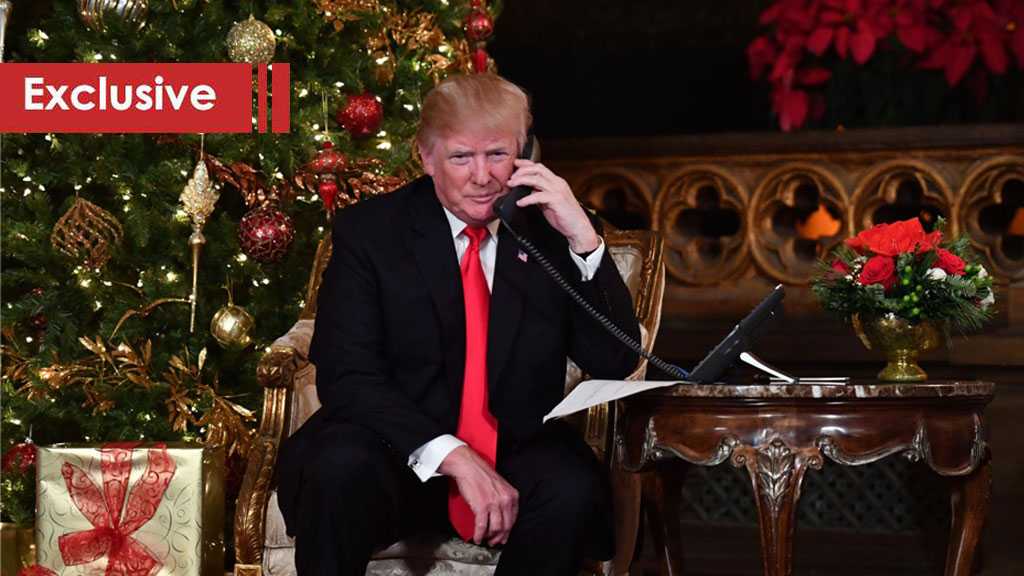
Trump’s Territorial Wish list: A Businessman’s Quest for Empire

By Mohamad Hammoud
Lebanon – Donald Trump's recent comments about making Canada the 51st state, retaking the Panama Canal, and purchasing Greenland reveal his willingness to use military action to achieve these goals. Such bold assertions have raised eyebrows, as it is striking for a president in this century to openly discuss territorial expansion. However, examining the actions of previous American presidents reveals a history of unjustifiable military interventions disguised under the guise of national security, as seen in Iraq, Afghanistan and Syria.
The key difference between Trump and his predecessors lies in his bluntness and lack of equivocation. For instance, during a 2017 interview with Bill O'Reilly, when asked about his relationship with "killer" Vladimir Putin, Trump stated that the US is not different from Putin, saying, "There are a lot of killers. We have a lot of killers. Well, you think our country is so innocent?" Similarly, his controversial remarks during a 2015 Republican primary debate, where he made a sexist comment about journalist Megyn Kelly, highlight his unfiltered approach, which contrasts with the more measured rhetoric of previous presidents.
Canada: The Unlikely 51st State
Trump’s suggestion to use "economic force" to integrate Canada into the United States and his controversial remark about making it the "51st state" exemplify his expansionist mindset. This idea aligns with his vision of consolidating economic power under American influence. While framed as a move to strengthen the US, it disregards Canada’s distinct cultural, political, and economic identity, as well as its strong sense of sovereignty.
Prime Minister Justin Trudeau’s emphatic rejection of the proposal underscores the improbability of such a union. Yet, Trump's statement resonates with his broader strategy: treating nations as assets to be acquired or controlled for perceived benefits to the US economy. This approach, rooted in his business background, reflects a worldview where consolidation and expansion are tools to maximize profitability and influence, often at the expense of national sovereignty and international diplomacy.
The Panama Canal: Revisiting Old Ambitions
Trump's focus on regaining control of the Panama Canal further highlights his emphasis on economic leverage. He complained that the fees charged to US ships are "ridiculous" and "highly unfair," framing the canal’s operations as an economic disadvantage to the United States. His rhetoric about potentially using military action to reclaim the canal taps into nationalist sentiment, portraying it as a vital asset unfairly lost to Panama in 1999.
Moreover, Trump mistakenly linked China’s growing global influence to the canal, despite the fact that China does not control it. While this may reflect genuine concern for US strategic interests, it also aligns with his preference for bold actions that capture public attention and resonate with his constituencies.
Panama’s President José Raúl Mulino firmly rejected Trump’s claims, sparking a diplomatic conflict that underscores the potential repercussions of such expansionist rhetoric. His suggestion of military intervention is particularly provocative, reflecting Trump’s tendency to use threats as leverage—a strategy familiar from his business dealings.
Greenland: Strategic or Self-Interested?
Perhaps the most surprising aspect of Trump's expansionist mindset is his interest in Greenland. He argued that acquiring the island was vital for US national and economic security, citing its strategic location and abundant natural resources. He framed the proposal as a win-win for both the U.S. and Denmark, even suggesting financial compensation for the territory.
Denmark swiftly rejected the idea, with Prime Minister Mette Frederiksen describing it as absurd. Trump's subsequent hints at using military or economic pressure only fueled controversy.
His interest in Greenland is driven by several factors, including its rich rare earth minerals and significant military advantages. Gaining control of Greenland would align with Trump's expansionist mindset and desire to enhance US national security.
There is also a personal motivation for Trump. As a businessman, he has always prioritized deals that enhance his wealth and influence. Acquiring Greenland would be a significant achievement, bolstering his legacy as a leader who expanded American territory. Thus, while the official narrative emphasizes national interests, personal gain and legacy-building play crucial roles in Trump’s pursuit of Greenland.
The Intersection of Business and Politics
Trump’s expansionist mindset is deeply influenced by his background as a real estate mogul. His business ventures revolved around acquiring and controlling valuable assets, a mentality that carries over into his political worldview. Nations and territories are viewed through the lens of their potential profitability or utility to the United States, often without regard for the political, cultural, or ethical implications.
Self-interest is a recurring theme in Trump’s policy proposals. As a businessman, he consistently sought to enhance his personal brand and financial empire. As president, many of his policies appeared designed to reinforce his image as a dealmaker and protector of American interests. Critics argue that this approach often blurs the line between national interests and his personal or business priorities.
For instance, his emphasis on controlling assets like Greenland and the Panama Canal aligns with his broader goal of projecting strength and dominance. Yet, it also reflects his penchant for tangible outcomes that can be marketed as personal achievements, further bolstering his brand.
Conclusion: Expansionism in Service of Legacy
Donald Trump’s expansionist rhetoric and policies reveal a mindset shaped by his dual roles as a businessman and a populist politician. Whether proposing to annex Canada, reclaim the Panama Canal, or acquire Greenland, his actions are driven by a combination of nationalist ambition and personal interest.
Unlike previous presidents who created factious reasons to invade other countries and seize resources, Trump has been blunt in his intentions, generating controversies that capture public attention.
Comments


